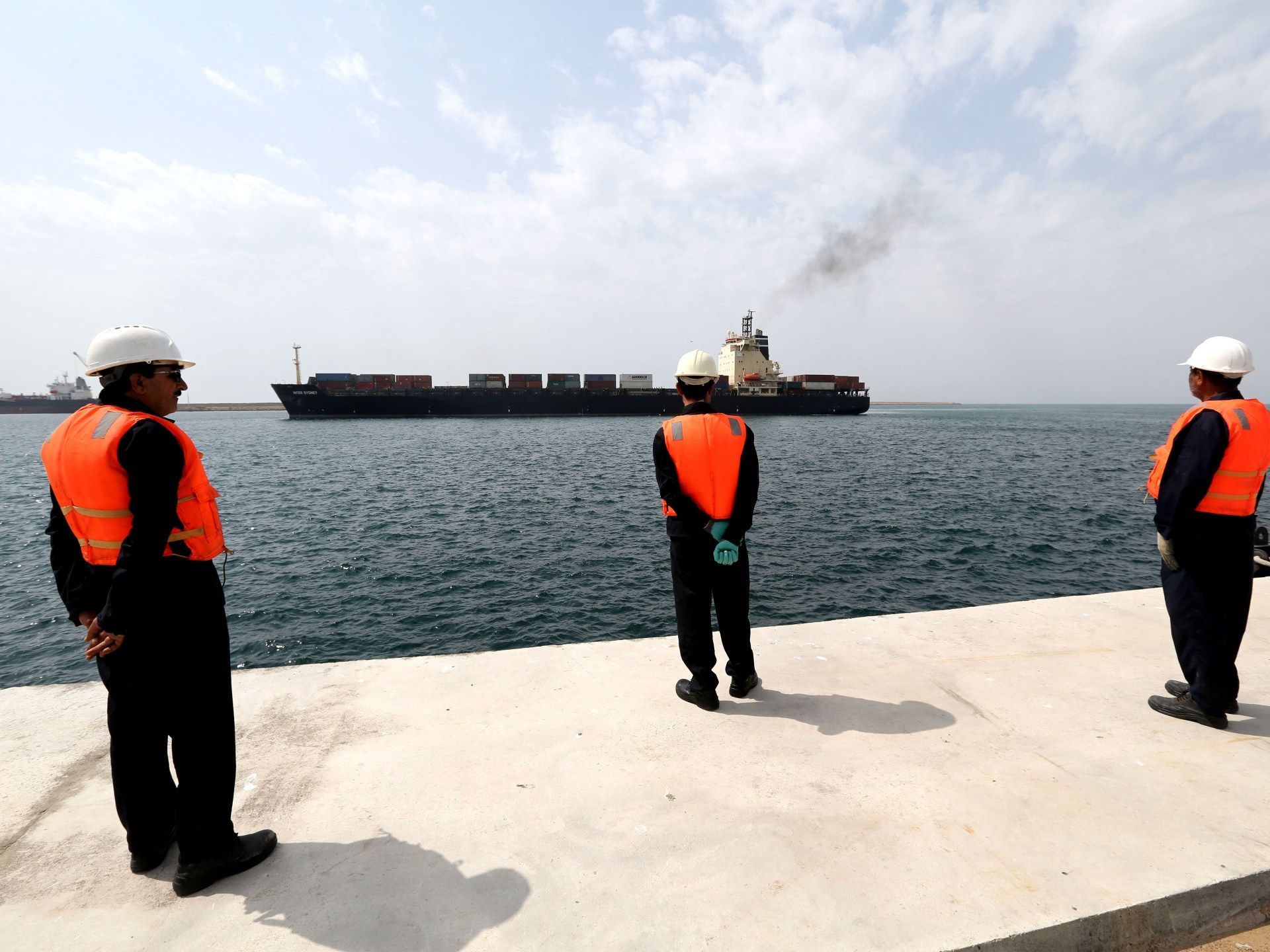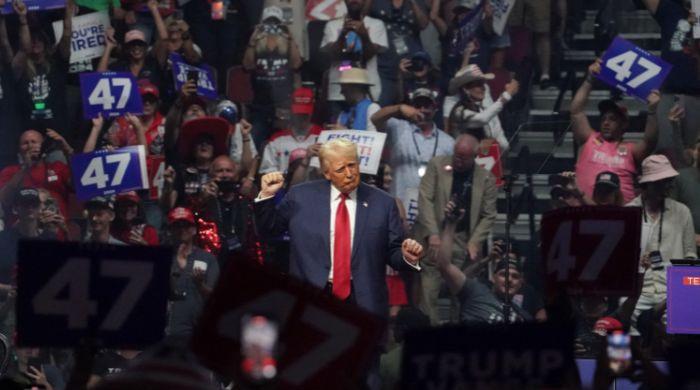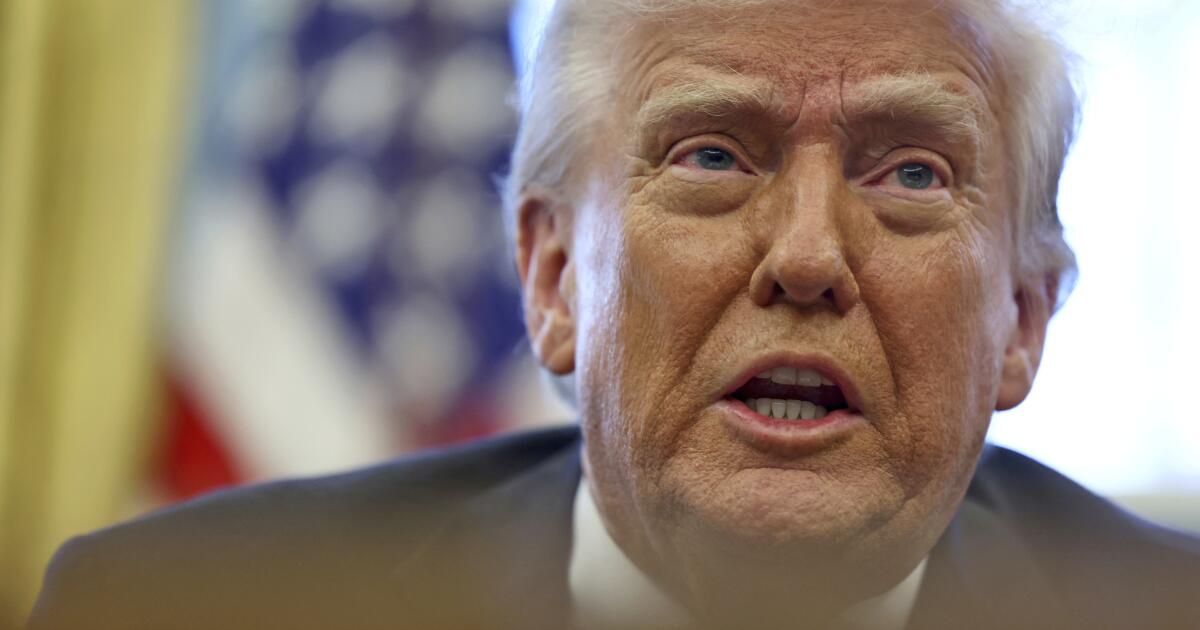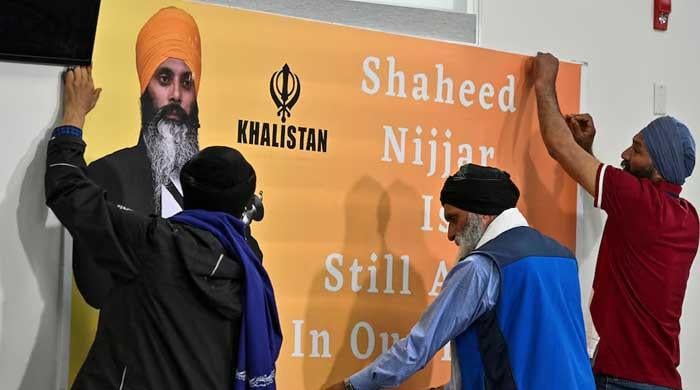India has signed a 10-year deal to develop and operate Iran's strategic Chabahar port, as New Delhi aims to boost trade ties with landlocked Afghanistan and Central Asian countries, bypassing the ports of its western neighbor and arch-enemy. Pakistan.
“He [the port] “It serves as a vital trade artery connecting India with Afghanistan and Central Asian countries,” said Indian Shipping Minister Sarbananda Sonowal, as New Delhi seeks to strengthen ties with a major Middle Eastern nation.
But the deal has sparked a thinly veiled threat of sanctions from the United States, with whom India has developed close economic and military ties in recent decades.
“Any entity, anyone considering trade deals with Iran, needs to be aware of the potential risk they are exposing themselves to and the potential risk of sanctions,” US State Department spokesman Vedant Patel told reporters.
Indian officials, however, have downplayed the tensions, with External Affairs Minister Subrahmanyam Jaishankar telling reporters on Wednesday that New Delhi would “communicate the benefits” of the deal to the United States and urge countries to ” not adopt a narrow view of it.”
Here's why the port deal matters, what the threat of sanctions is about, and what we should expect:
What is the Chabahar port deal about?
India Port Global Limited (IPGL) and Iran's Port and Maritime Organization (PMO) signed the long-term agreement, which will allow New Delhi to upgrade and operate a terminal at Chabahar port for 10 years.
Located in the southeast of Sistan-Balochistan province and perched on the Gulf of Oman, Chabahar Port consists of two separate ports: Shahid Kalantari and Shahid Beheshti. India will operate a terminal at Shahid Beheshti and, according to Monday's agreement, will invest $120 million to equip it. An additional $250 million line of credit for related projects at the port brings the contract value to $370 million.
The two countries first began talks on the project in 2003, but an avalanche of US sanctions against Iran prevented any real progress. Tehran and New Delhi revived talks after Washington eased sanctions under the 2015 Iran nuclear deal.
The two countries, along with Afghanistan, which was seeking alternative routes out of Pakistan, signed a tripartite agreement to develop the port during Indian Prime Minister Narendra Modi's visit to Iran in 2016.
At the time, New Delhi pledged to invest $500 million to rebuild a 600-meter (1,969-foot) long container-handling facility as part of its efforts to develop the deep-sea port as a transit hub. Chabahar is located about 140 kilometers (87 miles) west of Pakistan's Gwadar port, which has been developed as part of China's Belt and Road Initiative (BRI).
In December 2017, the first shipment of Indian wheat to Afghanistan passed through Chabahar, providing an alternative route to the land route through Pakistan.
In 2018, former US President Donald Trump withdrew from the nuclear deal and reintroduced “maximum pressure” sanctions against Tehran, which limited operations at the Chabahar port.

Why is Chabahar important?
India, with its booming $600 billion manufacturing industry, has ambitions to trade more closely with its inner-west neighbors, but hostile relations with Pakistan mean a land route for exports is a difficult proposition.
With the Chabahar port, India avoids deals with Pakistan and can transport goods first to Iran and then via rail or road networks to Afghanistan and resource-rich landlocked countries such as Uzbekistan and Kazakhstan. One Indian official has even mentioned reaching deep into Russia.
For India, Chabahar is “one of the centerpieces of its neighborhood policies,” a kind of golden gate to more investment opportunities in West and Central Asia, said Kabir Taneja, a fellow at the Observer Research Foundation think tank, with headquarters in New Delhi.
“The port already forms a key part of the region's ongoing International North-South Trade Corridor (INSTC) project, which aims to connect major cities such as the Indian financial hub of Mumbai and Baku, the capital of Azerbaijan, through of Iran through a mosaic of ships. , road and rail routes,” Taneja added. INSTC, which offers India a cheaper and faster route to trade with Central Asia, has also been hit by US sanctions on Russia and Iran.
Some analysts say the Chabahar deal is also a bulwark against rival China's dealings with Pakistan. Just four hours east of Chabahar port is Pakistan's Gwadar port, which is controlled in part by Chinese developers who have pumped some $1.62 billion into upgrading it since 2015.
India and China have contentious relations and have had a series of border clashes in recent years.

Can the US sanction India over the deal?
The United States has imposed limited sanctions on India's scientific establishment twice in the past (in 1974 and 1998) after New Delhi carried out nuclear tests.
But since the end of the Cold War, India and the United States have significantly strengthened their relations and today count each other among the closest strategic partners. Although India does not officially recognize any sanctions imposed on nations unless they have been approved by the United Nations, it has, for the most part, followed the US-led sanctions against Iran.
Until a few years ago, India counted Iran among its main oil suppliers. However, since 2018, when then-US President Donald Trump withdrew from the Iran nuclear deal and reimposed harsh sanctions on Tehran, India has reversed its purchase of Iranian oil.
However, in 2018, New Delhi successfully lobbied Washington for specific waivers to Chabahar-related sanctions because of the promise that the transit route could help Afghanistan, a key security interest for the United States at the time. . A rail link under construction connecting the port of Chabahar with Afghanistan was also exempt from sanctions.
But India's friendship with Iran now, when Tehran's support for the Palestinian armed group Hamas in Gaza has prompted even more US sanctions, puts New Delhi in a difficult situation. Afghanistan has also ceased to be a key interest for the US since it withdrew from the country in 2021, some analysts say.
Still, experts do not foresee radical sanctions against India.
“It is very unlikely that the Indian economy will be penalized for such a minor issue,” said Gulshan Sachdeva of Jawaharlal Nehru University in New Delhi. “In the worst case, only the entities involved in the Chabahar port deal could be subject to some sanctions,” he told Al Jazeera.

What would US sanctions on India mean?
India is one of the fastest growing economies in the world. But any US sanctions on the country will likely be contained and will not affect global trade, analysts say.
US sanctions on Iran have hit India hard in the past. The Chabahar port exemptions under Trump did not extend to infrastructure initiatives that would have allowed India to connect with Central Asian nations located further inland, for example, hampering India's ambitions. India's decision to avoid buying Iranian oil to avoid the risk of US sanctions has also left it more vulnerable to price pressures from other suppliers.
But if the United States tries to get tough on Chabahar, some analysts believe India will respond more forcefully than in the past.
“Chabahar is more important and New Delhi is willing to work to keep it alive in the long term,” said analyst Taneja.
If India presses ahead despite a real threat of U.S. sanctions, that would be a signal to Washington, said Sarang Shidore, director of the Global South Program at the Quincy Institute for Responsible Statecraft, a Washington-based think tank.
“Global South states will continue to pursue their own interests despite Washington's preferences to align them with its strategic objectives,” he said.
“Washington should reevaluate its policies that force the Global South to make decisions that may alienate them and limit America's opportunities in this vast, largely non-aligned space.”












